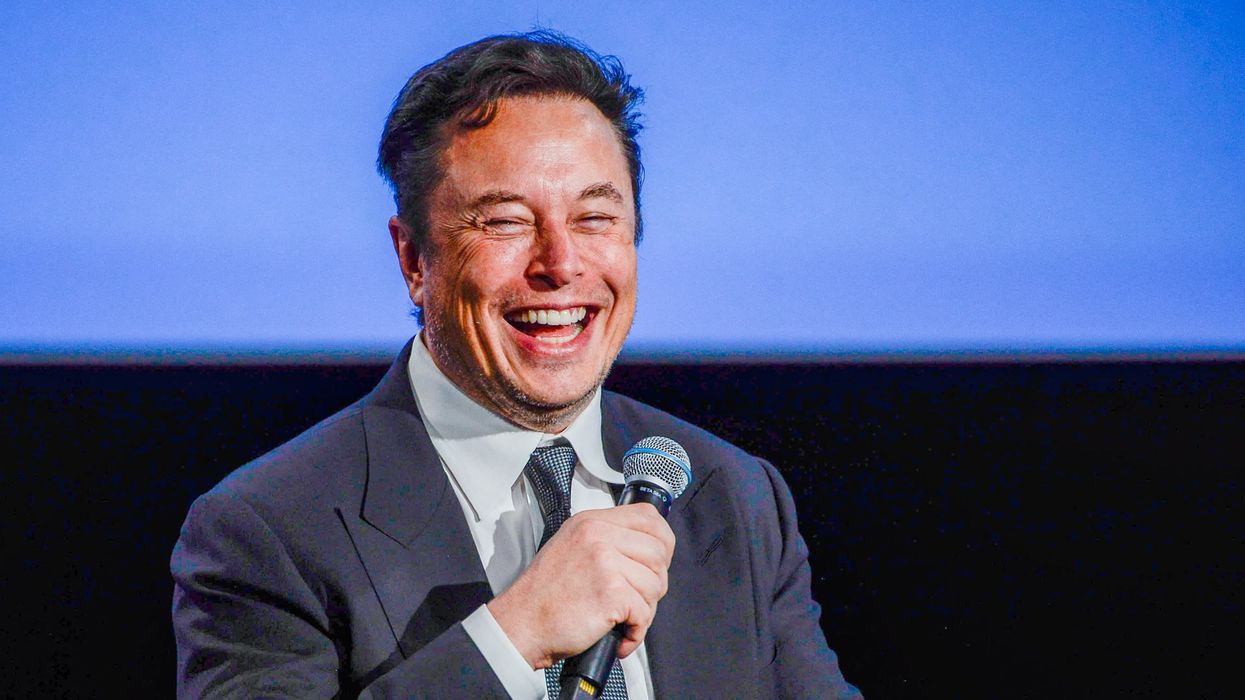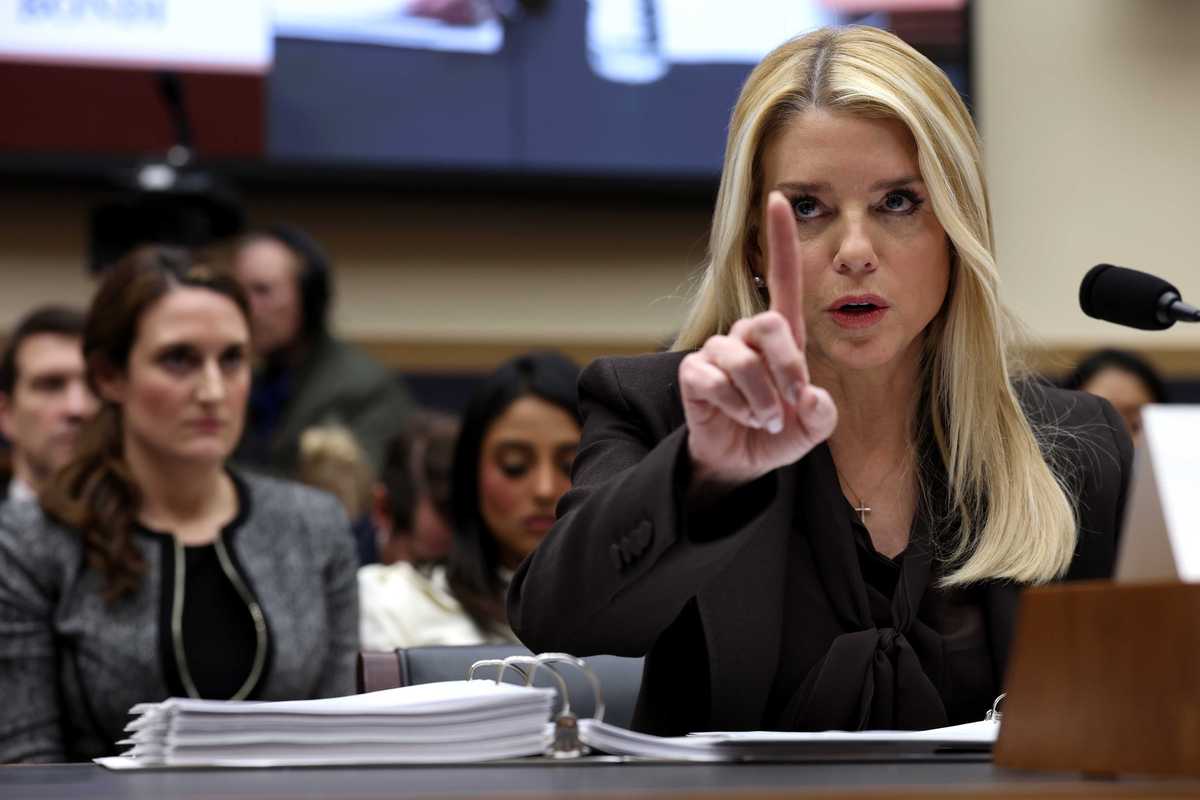Science & Tech
Liam O'Dell
Apr 12, 2023
Elon Musk says his dog is the actual CEO of Twitter
Twitter Spaces
In a “last-minute” interview which even BBC News said was a “surprise”, Twitter CEO Elon Musk sat down with the broadcaster to discuss how everything was going at the platform following his takeover just six months ago.
The interview, which was also broadcast live on Twitter Spaces, came days after Musk’s Twitter labelled the BBC’s account as “government-funded media” (it isn’t) – a move which was rebuked by the organisation.
Sign up to our free Indy100 weekly newsletter
Musk said he agreed to the interview – which was carried out by the BBC’s North America technology reporter James Clayton – because of “spontaneity”, and that it would be a “good opportunity” to ask questions and receive feedback.
Here’s what else he said…
1. On no longer being CEO of Twitter – apparently
First of all, we should probably clarify that Musk is supposedly no longer the CEO of Twitter – he says Floki, his pet dog (a Shiba Inu, obviously), is instead.
This seemingly refers to a tweet put out by Musk back in February, in which he shared a picture of the dog behind a desk and wrote “the new CEO of Twitter is amazing”:
It also follows Musk running a poll in December last year as to whether he should step down as the head of Twitter, with more than half voting “yes” after more than 17 million votes were cast.
He went on to confirm he will resign “as soon as I find someone foolish enough to take the job”, after which he would only run “the software and servers teams”.
Musk told the BBC: “I keep telling you I’m not the CEO of Twitter, my dog is the CEO of Twitter.”
“I said I would appoint a new CEO and I did and it’s my dog.”
2. On the BBC’s Twitter label
In a statement previously provided to indy100, a BBC spokesperson said: “We are speaking to Twitter to resolve this issue as soon as possible. The BBC is and always has been, independent.
"We are funded by the British public through the licence fee."
After being asked about the label by Mr Clayton, Musk responded to say he wants the label to be “as truthful and accurate as possible” and confirmed they are “adjusting” it to say the organisation is “publicly funded”.
“We’ll try to be accurate,” he said.
3. On his secret sleeping spot in the office
Back in December, Musk revealed on Twitter that he had “slept on a couch” in the library section of organisation’s San Francisco headquarters - and that he doesn’t “ever wear slippers”.
He repeated the claim to the BBC, adding that it was a spot “that no one goes to”.
Sneaky.
Later in the interview, Musk explained he wanted to transform one of Twitter’s buildings into a homeless shelter but can’t, as the owner of the building in question won’t allow him to do so.
4. On his “rollercoaster” time at Twitter so far
Channelling his inner Ronan Keating, Musk said his time as Twitter boss so far has been “quite a rollercoaster” and has “not been boring”.
In fact, despite previously saying the platform is “brittle” last month – after a string of outages, which he acknowledged in the BBC interview – Musk added things have been going “reasonably well” and that “the site works”.
5. On Twitter’s “negative cash flow situation”
In one of a handful of comments about Twitter’s finances, Musk said the company collecting $4.5 billion both in terms of revenue and costs meant the business was experiencing negative cash flow, with the social media network being run “really like a non-profit”.
With the firm apparently “spending money like it’s going out of fashion”, Musk said Twitter was left with “four months left to live” – something which he says meant “drastic action” had to be taken.
That, of course, being the shocking mass-layoffs at the company late last year, which Musk said took the number of staff members from 8,000 down to 1,500 and can be “painful”.
6. On The New York Times losing their verified tick
Earlier this month, The New York Times – which Musk has compared to “diarrhoea”, lost its verified tick on Twitter after the publication made it clear they would not pay for the badge.
Musk himself accused the outlet of being “hypocritical” because they are “super aggressive about forcing everyone to pay *their* subscription”.
Speaking to Mr Clayton on Tuesday, he added: “It’s a small amount of money, so I don’t know what their problem is. We’re going to treat everyone equally.”
7. On hate speech
In one of the more tense moments of the interview, Musk was asked about the presence of hate speech on the platform, in a line of questioning which saw the Twitter boss flip the script on the BBC journalist.
He asked Mr Clayton “who’s to say what’s right and wrong” and “who is the arbiter” of free speech of the platform, and when the correspondent claims there’s been more “hateful content” on Twitter, Musk challenged him to give an example.
“I’m asking for a single example and you can’t name one,” Musk said.
The Tesla and SpaceX owner previously expressed his “commitment to free speech” as Twitter’s new boss, even though his tenure has already seen him ban (and then unban) journalists, restrict the reach of social media rivals, and temporarily shut down features after they were used to hold him accountable.
8. Continuing the interview after the BBC journalist tries to wrap it up
In chaotic scenes, just short of an hour after the BBC interview began, Musk continued to take questions on Twitter Spaces while Mr Clayton was keen to end the interview altogether.
The BBC journalist tweeted: “OK so usually the interviewee leaves the interview. Elon Musk now taking questions on Spaces.”
After the interview finally finished, Musk tweeted and retweeted a handful of posts critical of the BBC, writing himself that “I said BBC could come [to] Twitter, then, to my surprise, a reporter shows up”.
Have your say in our news democracy. Click the upvote icon at the top of the page to help raise this article through the indy100 rankings.
Top 100
The Conversation (0)














